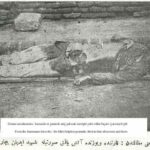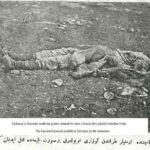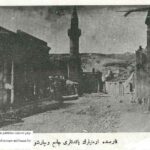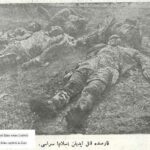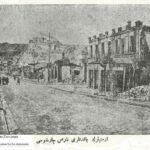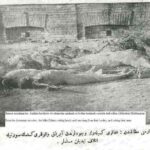From: Haluk Demirbag, BSc [mailto:[email protected]]
This shows why me and people like me – who are quite positive about Turkey – distrust and dislike
Armenian activists as much as we do: update: video put in. My apologies.
Hilarious that the guy speaks about America, while standing in front of a sign of a strictly Armenian organization, and dedicated to a completely different country.
Listen to the way this person looks at foreign policy. Seemingly, the ‘Jews’ have been replaced by the Turks. It are no longer the Jews who are ‘crafting US foreign policy,’ it are Turks. It is not longer ‘Israel’ that decides what the US does, it is ‘Turkey.’
Turks are the new Jews, Turkey the new Israel.
Listen to the hatred and anger in this man’s voice. This anger and hatred is all too real. He’s an exponent of the hate campaign, which has been going on for decades now, in the Armenian Diaspora.
What’s even more hilarious is that the youth activist blames those who are on the Turkish side of the debate – of the truth in other words – always try to personally smear their opponents. Frequent readers of this blog know that the situation is somewhat different; the exact opposite I’d say.
They also constantly talk about ‘genocide denial’ as if their opinion is universally considered to be the truth. This is, quite simply, not true. Approximately 50% of historians say that what happened does not constitute genocide, while the other (approximately) half says it does. The most famous and respected historians, such as Bernard Lewis, are on the ‘no-genocide’ side.
But don’t let facts – also the 1.5 million figure – get in the way of the truth, I’d say.
Now, lets talk about hijacking US policy. Who’s trying to do the hijacking here? Turkey, which is simply minding its own business, and working with the US when the two can work together, or Armenian activists who try to get the US to supports its claims after which they want Western governments help them to force the Turkish government to give money and lands to Armenia? Which group is truly trying to influence the foreign policy of another country? The Turks, or Armenia?
What’s also interesting is that they use the words “Turkish government” constantly, as if the Turkish government is behind the ‘no genocide’ side. That is, and they darn well know it, not true. The Turkish government is actually quite passive – sure they invest some money, sure they lobby, but they could do much more. No, most of those who speak out about this issue are individual Turks themselves, and others who disagree with the Armenian take on the events of 1915.
Of course, these Armenian activists know it. But still they use ‘Turkish government’ constantly. Why? Two reasons:
1. It’s a way to discredit all those who dare disagree with them. Those who disagree with them are simply ‘paid agents’ of the Turkish government.
2. It’s a way for them to hide their hatred and racism for anything Turk. If they would say ‘Turks’ (and their allies) instead of ‘Turkish government,’ they would quickly be accused of racism. And they know it. So, instead of saying what they truly mean, they talk about the Turkish government.
Lastly, it has to be pointed out that if there’s one country involved in this affair, it’s Armenia itself. Armenia has been assisting and helping Armenian activists in the West for decades. Armenia’s policy is still that it wants to steal lands from Turkey, and it wants to do so – not by force, for they cannot beat the Turks by force – by forcing foreign governments into accepting their claims. Those governments then have to put pressure on Turkey to give into the Armenian demands.
In other words, the Armenian government itself actually played and continues to play an important role in the genocide claims and campaign.
UPDATE
Read this article by an Armenian lady to understand how much so many Armenians hate Turks, and how they teach their children to hate Turks. To think of them as savages, animals, and so on. It’s a shocking article.
UPDATE II
A reader sent me the following quote from Edna Petrosyan: “It’s better that I be a dog or a cat, than a Turkish barbarian…”
She recited this part of a hateful poem, after her mother told her to do so. She was quoted in the Los Angeles Times of February 1, 1990.
Source:




